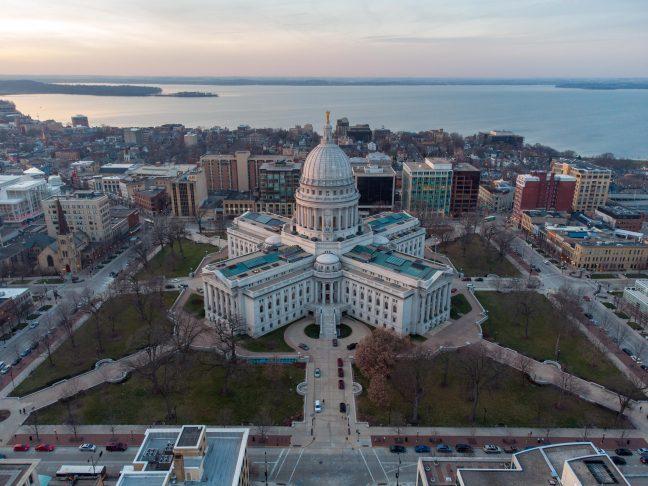Whether we realize it or not, the pandemic has changed our lives forever. It changed our ways of learning, working, communicating and more. We have proven that companies do not always need to rent office spaces and it’s possible for students to continue their education online. On the surface, it might seem like we all just needed time to switch to a new online mode, but while some people can adjust easily to a new normal, that’s not the case for everyone.
This pandemic has impacted the economy for years to come. At the beginning of Feb., about 10 million people nationwide lost their jobs in an economic recession, and in Wisconsin, 171,694 residents are unemployed — a 6.2% unemployment rate. Moreover, of the 5.8 million people living in Wisconsin, about 10% of the population — 580,000 people — live below the poverty line.
Clearly, the pandemic financially hit many Wisconsinites hard. But the economic crisis also revealed impact disparities — “two tales of a pandemic.” People or workers of color suffered more economic hardships than their white counterparts.
More than 60% of white registered voters said the pandemic did not affect their quality of life, while less than 50% of people of color agreed, according to a Wisconsin Public Radio report.
Laura Dresser, who specializes in labor economics at UW-Madison, said these disparities come because most workers of color in Wisconsin work low-income jobs. Obviously, an economic recession could only worsen their situation.
In an attempt to alleviate nationwide economic hardships, the House of Representatives passed a $1.9 trillion relief package granting most Americans a $1,400 stimulus check.
But according to the Economic Report of the President 2021, 2020’s projected federal budget deficit is $3.1 trillion dollars at the moment. With the $1.9 trillion relief package, the federal government pushes the budget deficit to $5 trillion dollars. In Wisconsin, the state budget deficit pushes $400 million.
Surprisingly, Americans’ saving rate hit a historical high in 2020, but with continuing economic downturns, those savings could be in peril. The stimulus check will accelerate the inflation rate, decreasing actual purchasing power. This means what one can buy using $10 now may cost $15.
As the state government continues to push for spending money, they will drive up the interest rate on loans. If this keeps going, they will have to borrow from the Federal Reserve at an extremely high-interest rate, increasing state debt, because the Fed cannot keep a zero interest rate forever.
This calls for drastic social welfare reform by the state government. To start, the state government should raise taxes for those who are at the top 1% of income earning. Those with the dispensible money to pay more taxes should have to pay more to close the wealth gap and achieve equity.
This revenue from steeper taxes on the 1% could help the state create and expand social programs for low-income residents, such as unemployment insurance, the Supplemental Nutrition Assistance Program and homeless resources and shelters like Porchlight in Madison, which would also help Wisconsin close the wealth gap.
Given the pandemic, all residents should receive free vaccination, whether or not they have health care. To achieve herd immunity and guarantee public safety, every resident needs to be fully vaccinated.
As human beings, we are all entitled to food, water and shelter. Since Republicans ended the mask mandate, the state lost over $49 million in food assistance, as the mask mandate was a criterion for getting federal assistance. The state should raise the income tax rate to refund these food assistance programs.
As the pandemic goes on, the wealth gap will continue increasing. The state Democrats and Republicans must put partisanship aside and really work on policies and programs that are beneficial for Wisconsinites.
Ken Wang (kwang@badgerherald.com) is a sophomore majoring in political science.


